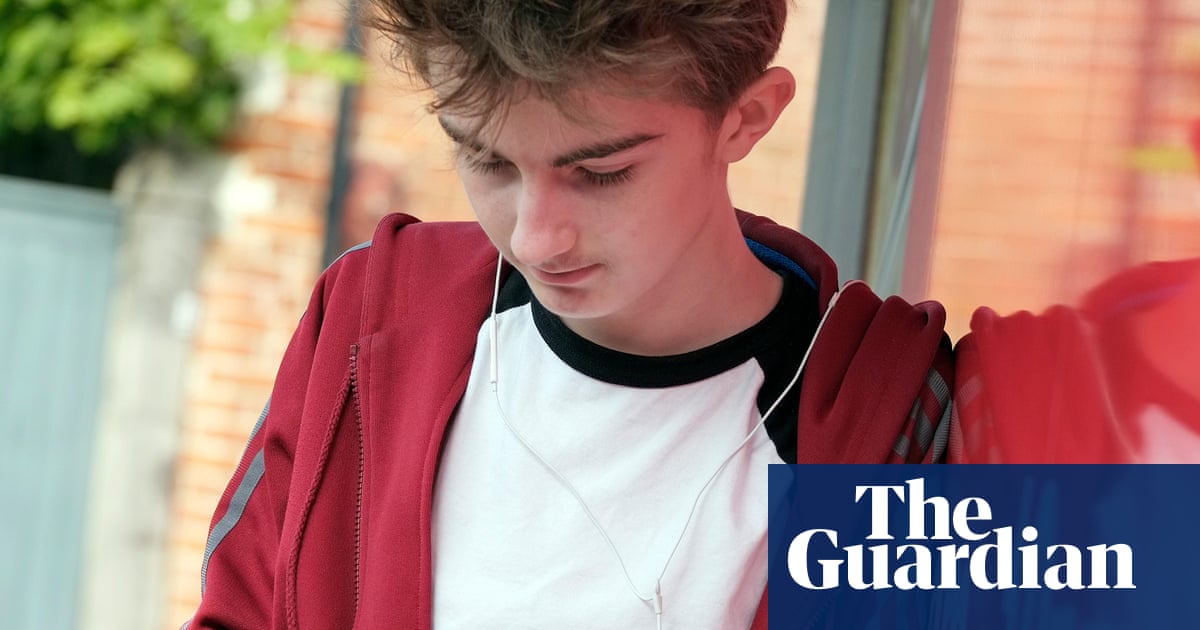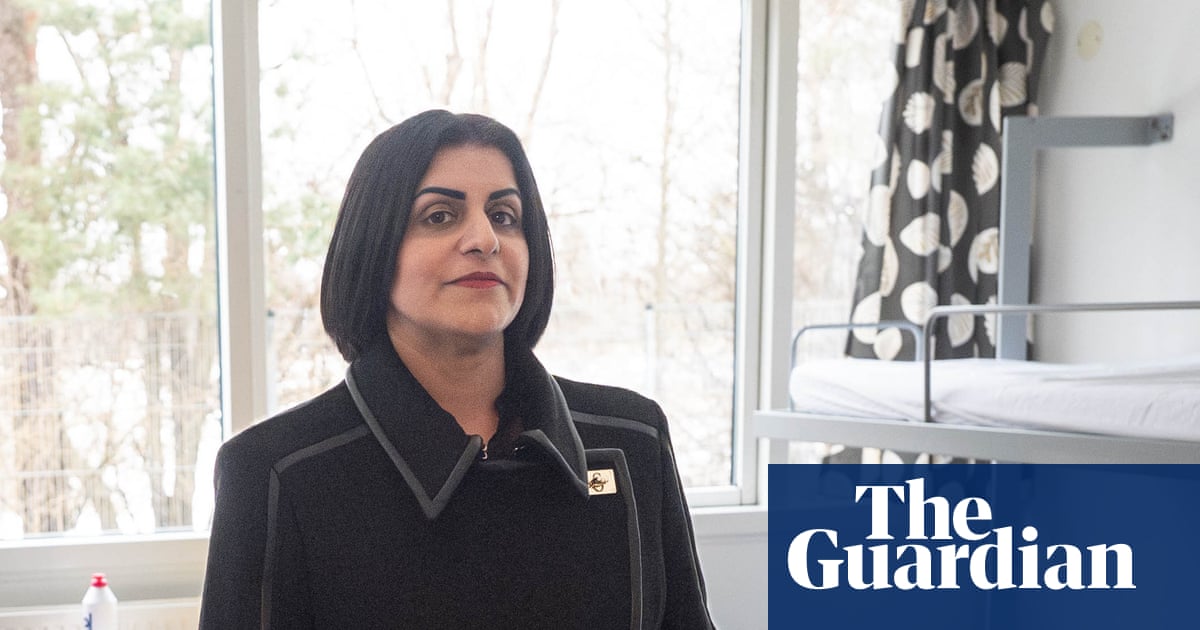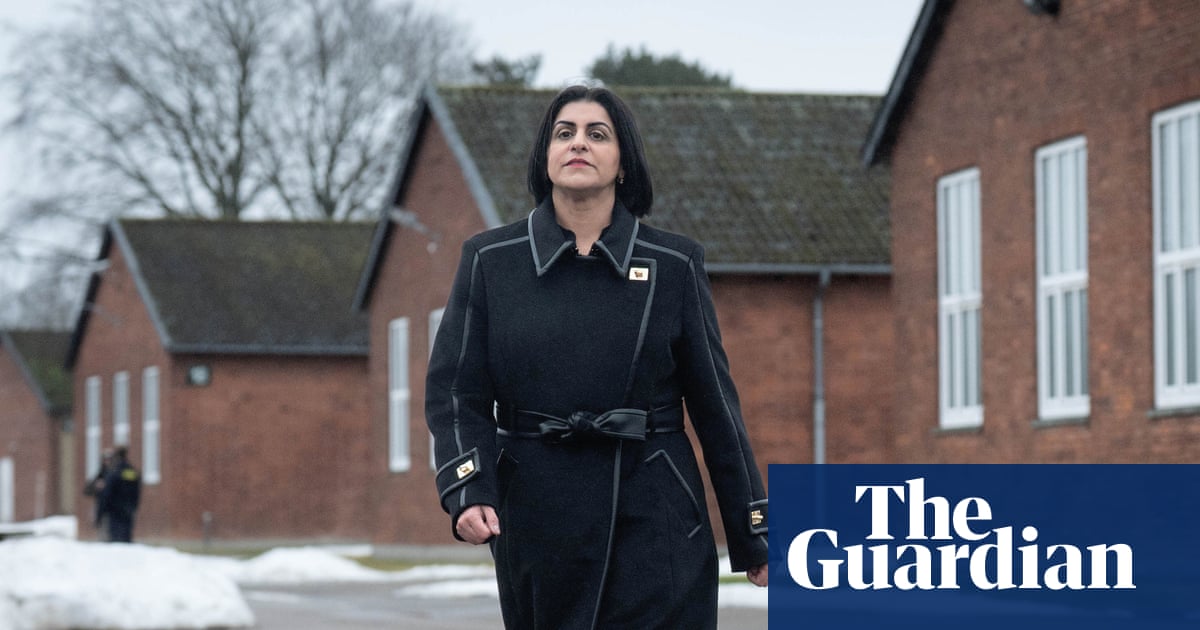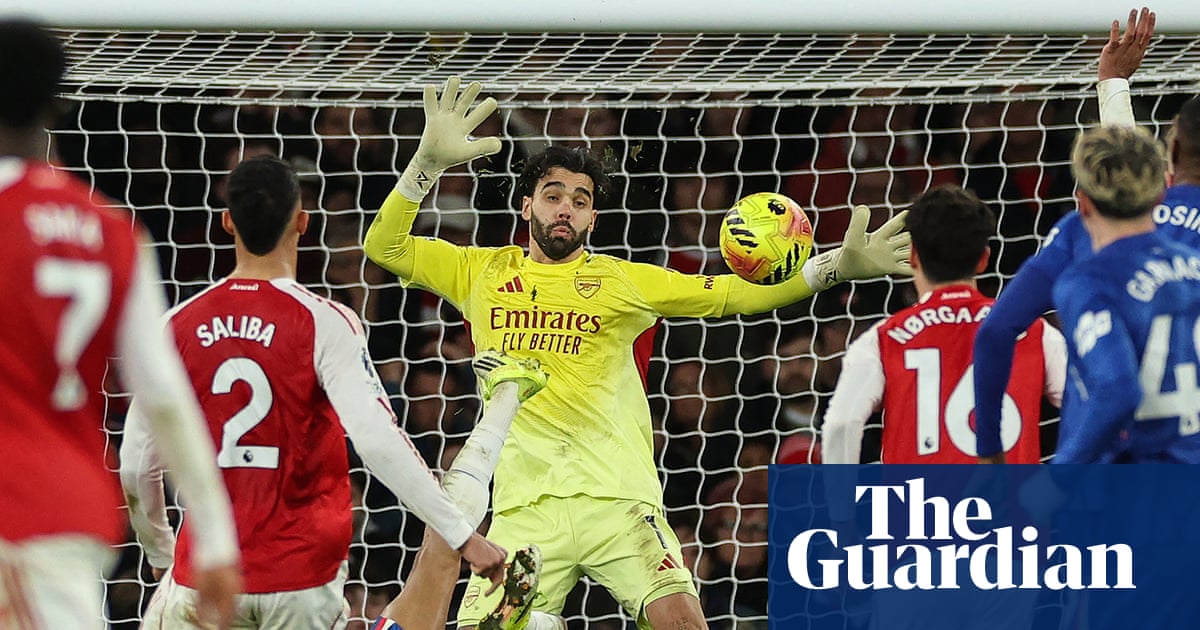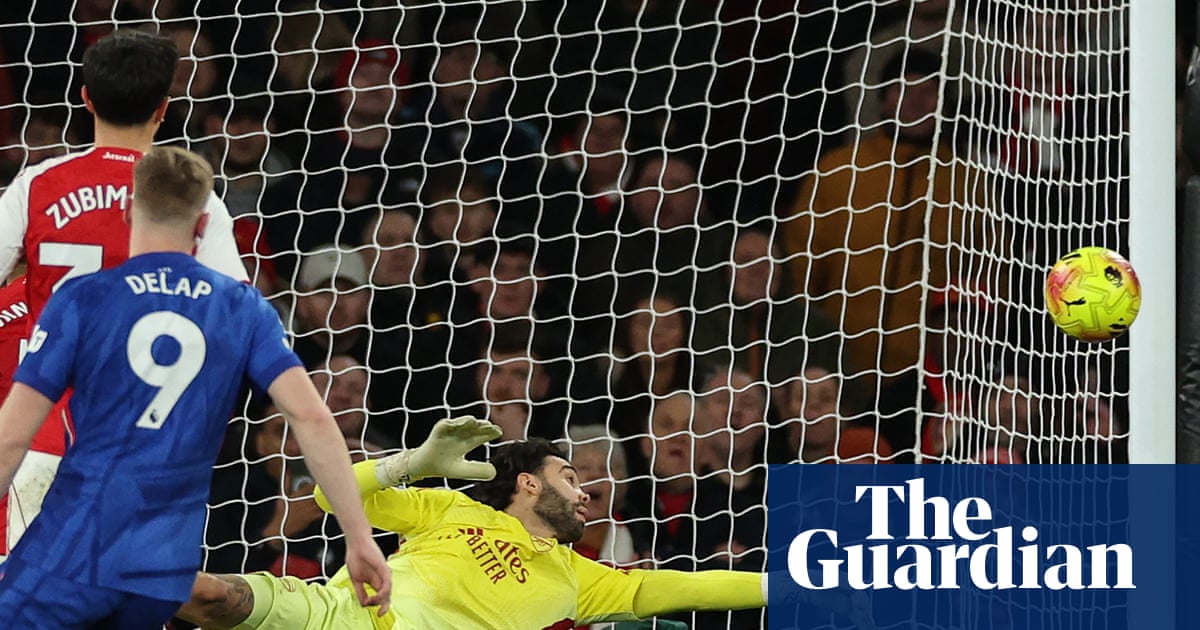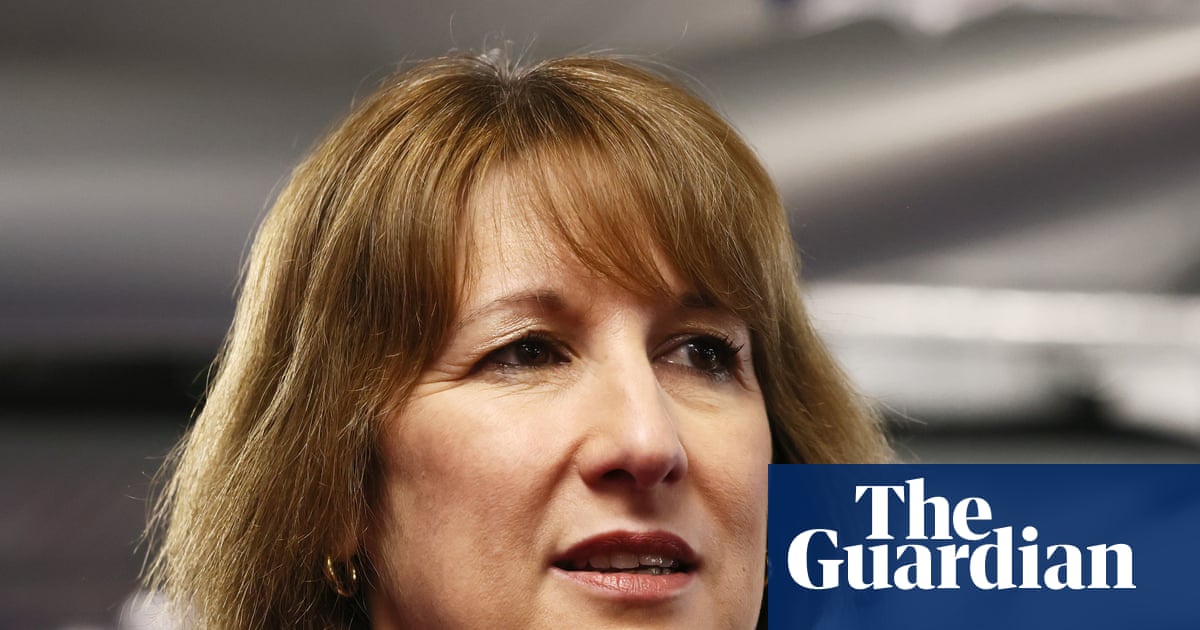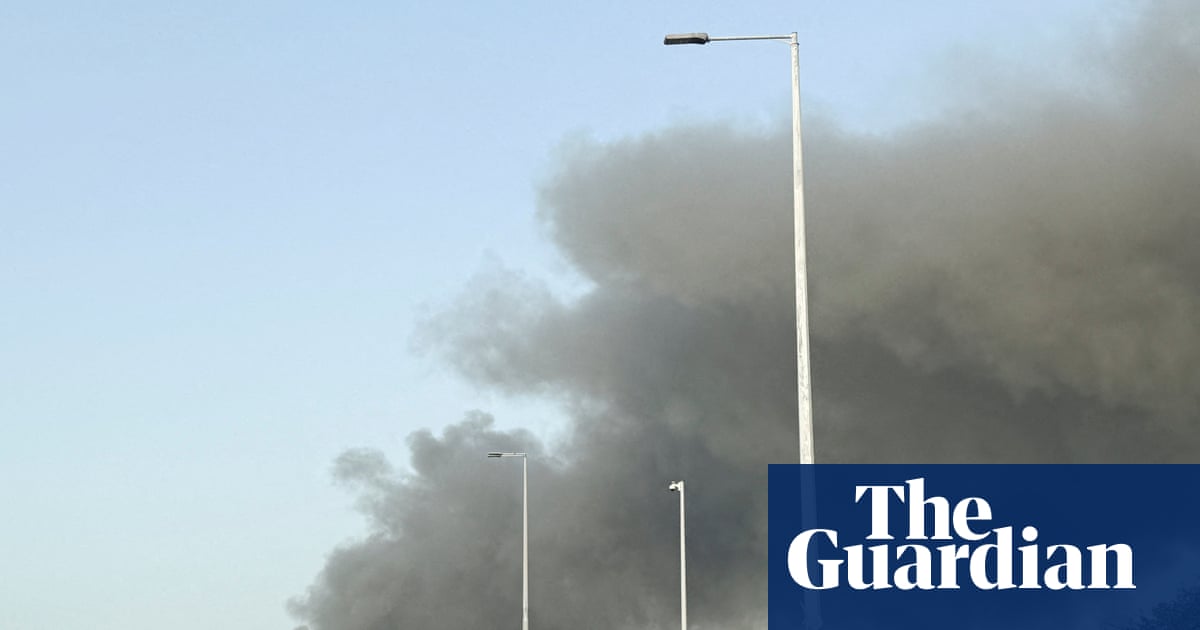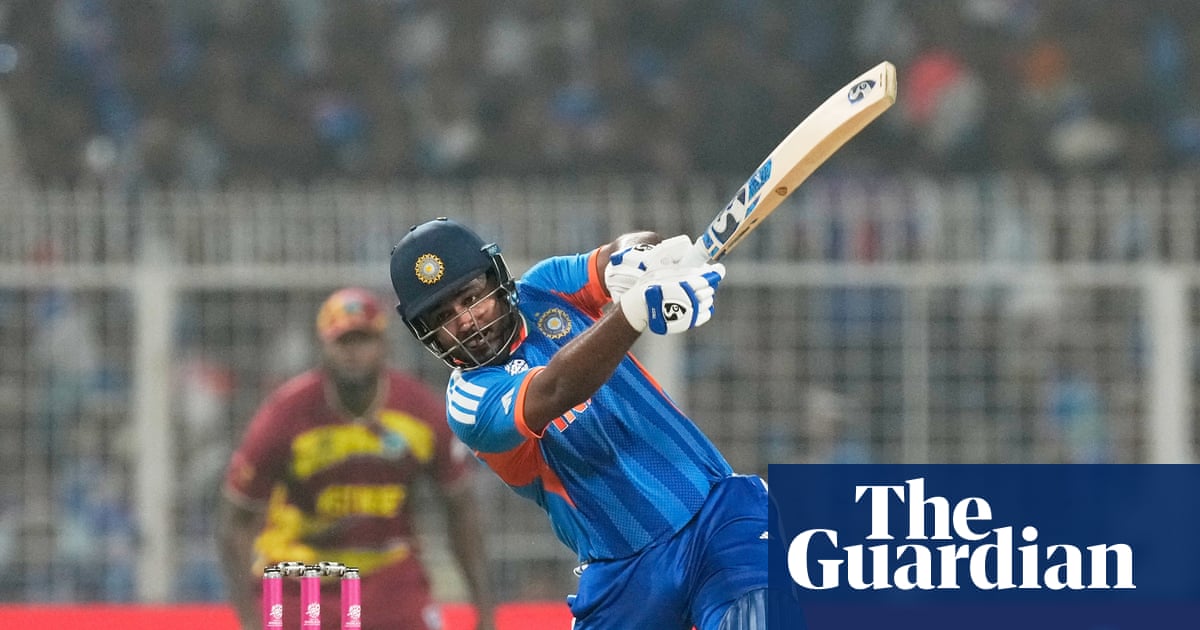We could be happy together, if only we weren’t here and it wasn’t now: the tragedy of sweethearts caught up in conflict, their love overcome by others’ hate, is an old and powerful story. Trespasses, an adaptation of Louise Kennedy’s novel, written by Ailbhe Keogan, hits that nerve.
A small town outside Belfast, 1975: rancour, suspicion and grief shadow every moment in the thwarted life of Cushla (Lola Petticrew), a Catholic primary-school teacher in her mid-20s who is giving up her spare time to work shifts in her brother’s pub. The priests at the school are hollering bigots, telling the children that every Protestant is an evil enemy, despite one of the kids being the son of a Catholic father and Protestant mother. Cushla takes an interest in the boy, who tends to arrive at school without a coat, and his elder brother, who shows signs of secretly sharing Cushla’s love of reading. She gives them lifts back to their house on a flag-strewn Protestant estate, at the risk of her car being pelted with bricks, and redoubles her support for the family when the dad has his legs and skull broken by vengeful neighbours.
In the pub, meanwhile, the British soldiers who drink there make every evening a tense ordeal, fraught with the possibility of it ending in violence that Cushla and her brother would be powerless to stop. After closing, Cushla invariably arrives home to find her widowed mother Gina (Gillian Anderson) drowning in loneliness and gin.
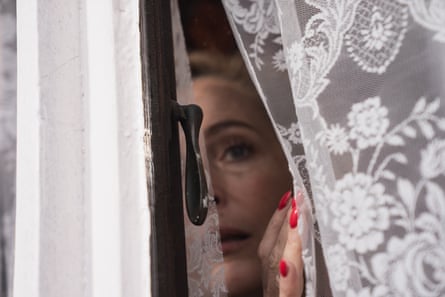
We know that in six months’ time, Cushla will be picking through the pub’s smoking ashes, with who knows who having been caught in the blast, and we suspect that this is the end of a sequence of events set in train when controversial local celebrity Michael Agnew (Tom Cullen) walks in. Cushla visibly loves him from that moment, before he has sat down and suavely ordered his first Jameson. Michael is a Protestant barrister who defends young Catholics, in the belief that securing them a fair trial is the best way for him to personally slow Northern Ireland’s cycle of violence – a gesture that has made him unpopular with other Protestants, but also with Catholics, who feel he legitimises the repressive judicial system. He’s a walking target, he’s married and he’s at least a decade older than Cushla, probably more like two. Embarking on an all-enveloping affair with him would be wild.
With the tousled hair and tight waistcoat of a romantic hero from two centuries prior, Cullen’s Michael is a dreamy old goat. His charisma is timeless. It’s not clear how seriously Cushla (and we) should take his grand “this is the point of the series, folks” speech about how “we must find the bravery to choose freedom over fear”, delivered on a gorsey hillock away from all the urban warfare, but the sentiment is intoxicating anyway.
“It’s yourself,” he says as she stands in front of him alone for the first time, in his posh city shag-pad. Van Morrison spins tastefully on his turntable two minutes later as Cushla dangles her head off the edge of the mattress, with Michael’s head in the middle. In Cullen’s hands, the guy has game, and the show wouldn’t work if he didn’t. But the bigger burden is borne by Petticrew, who is in every scene and who, if she played Cushla with less care, could let the character’s ever-changing intentions and passionate purity tip into naivety. Instead she makes the tension between Cushla’s energy and cold reality at first rousing, then heartbreaking.
As it establishes itself, Trespasses seems like a collection of familiar melodramas, each borrowing from the Troubles for extra dramatic heft. We have the woman in love with a married man who isn’t honest about his home life, the teacher who goes outside her remit to help a deprived pupil, and the woman whose alcoholic mother’s final descent to oblivion will surely coincide with the one time her daughter focuses on her own happiness. It’s all Cushla, with each relationship drawing on the visceral enmity between Catholics and Protestants to rescue it from cliche. But the narrative is constructed with deceptive skill. Small moments and minor characters turn out to be crucial and, as the strands knit together, agonising ironies pile up.
Strip down the show’s politics and they would be dangerously close to a hand-wringing plea for both sides to stop being as bad as each other, to end the violence, and won’t somebody please think of the children. But the Troubles give Trespasses what it needs. As individuals’ hopes and feelings are crushed in the gears of events much bigger than them, we feel that pain.

.png) 3 months ago
82
3 months ago
82



